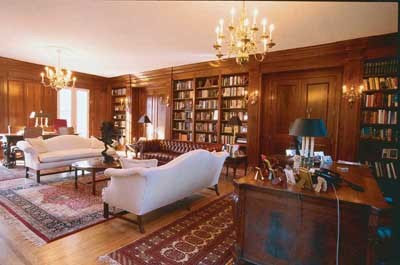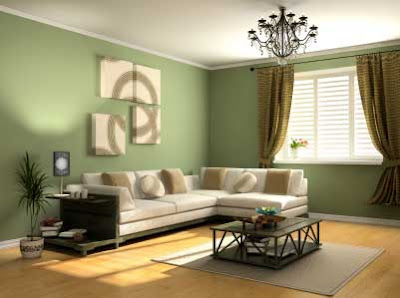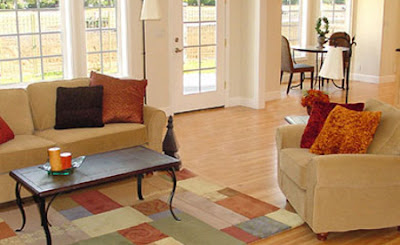Moving into your first house is a liberating, landmark life passage. After you've freed yourself of your college futon and your roommate's attempt at fine art, it's time to come up with a plan for turning your empty shell of a house into an inviting home. Here are some suggestions for pulling it off:
1. Clean house at the old place. Even before you make an offer on a new place, get ahead of the game by starting this process. This critical first step will not only make your current digs easier to pack up, but it will put you miles ahead during move-in. Be strong and rid yourself of anywhere from 25 percent to 50 percent of your old stuff: wobbly furniture in the attic, faulty appliances in the garage, questionable accessories you received as gifts. This is the perfect time to start over. Pare down your accumulated possessions to the minimal amount. Have a garage sale, auction it off on eBay or donate it to charity. You'll be amazed at what you won't miss.
2. Start with the bedroom. It's where you'll be spending almost a third of your time when you're at home, after all. If you're on a tight budget, opt for new bedding first, but don't skimp on thread count! Buy as well as you can afford to spend in this area — it makes a huge difference. If you have a little more money, paint the bedroom walls to complement your new bedding. Still more cash in your pocket? Add coordinating window treatments. Early risers should opt for a lighter palette of colors and more translucent treatments. Night owls who like to sleep in will probably likely be more satisfied with deeper tones and more substantial coverings that block out the light. If you're really ready to splurge, buy that bed you've always dreamed about. And choose carefully. It should mirror your personality, fit your room comfortably and stay with you for years.
3. Don't buy everything all at once. Live in your new house for at least two months before you make any significant purchases. How you think you're going to use the house and how you actually live in the house are commonly two different things. Maybe that $5,000 you were going to spend on renovating the bathroom isn't quite as important as beefing up the kitchen and dining area for maximum entertaining purposes. And you may figure out that the living room loveseat would work much better in your master bedroom and the master bedroom's chaise will work better in the den.
4. Fight the urge to match. Retail stores love to perpetuate the fallacy that everything has to match. They would love for you to buy everything in sets, but don't do it! A few pieces with the same styling are fine, but any more than that and your home has the lifeless, generic look of a furniture showroom. Make sure your own personal style shows through, which most likely isn't bland, beige and boring. Top priority should be proportion, scale and balance of your furniture and accessories within each room. Don't shove five pieces of oversized lounge furniture into a 15x5 den that has a modest 8-foot ceiling. It will look like a clown car. Conversely, putting only a low buffet and a delicate, round dining table for four into a 20x30 room with a soaring 12-foot ceiling will look equally awkward and unsatisfying.
5. Tie everything together with color. If you've moved into your first place with furniture that spans the 1960s to now, don't worry. The easiest, most economical way to overcome this seemingly insurmountable problem is unifying through color. Let's say you have a sofa that has only one thing in common with the furniture in the rest of your living room: a tiny bit of the color in the fabric is the same as the less dominant color in the rest of the room's upholstery. Solution? Play up that similarity and make it your living room's unifying wall color. If that's too much hard labor for you, find curtains, rugs or accessories in this common hue and see how the pieces begin to complement each other.
6. Solve practical problems inexpensively. If your kitchen cabinets are drab, for instance, freshen them with paint and change out the hardware. And don't bother installing overly decorative (and very expensive) cabinet hardware on cheaply fabricated woodwork — it will look out of place and the money can be put to better use elsewhere. In the bathroom, something as simple as replacing the lighting can immediately improve the room's appearance. If you find the typical incandescent R-type lamps in your new place, replace them with the less "yellow" PAR-type bulbs. Another inexpensive solution with a big payoff is installing dimmer switches to keep light levels low for a midnight bathroom break or to create a romantic mood for bubble baths for two.






No comments:
Post a Comment